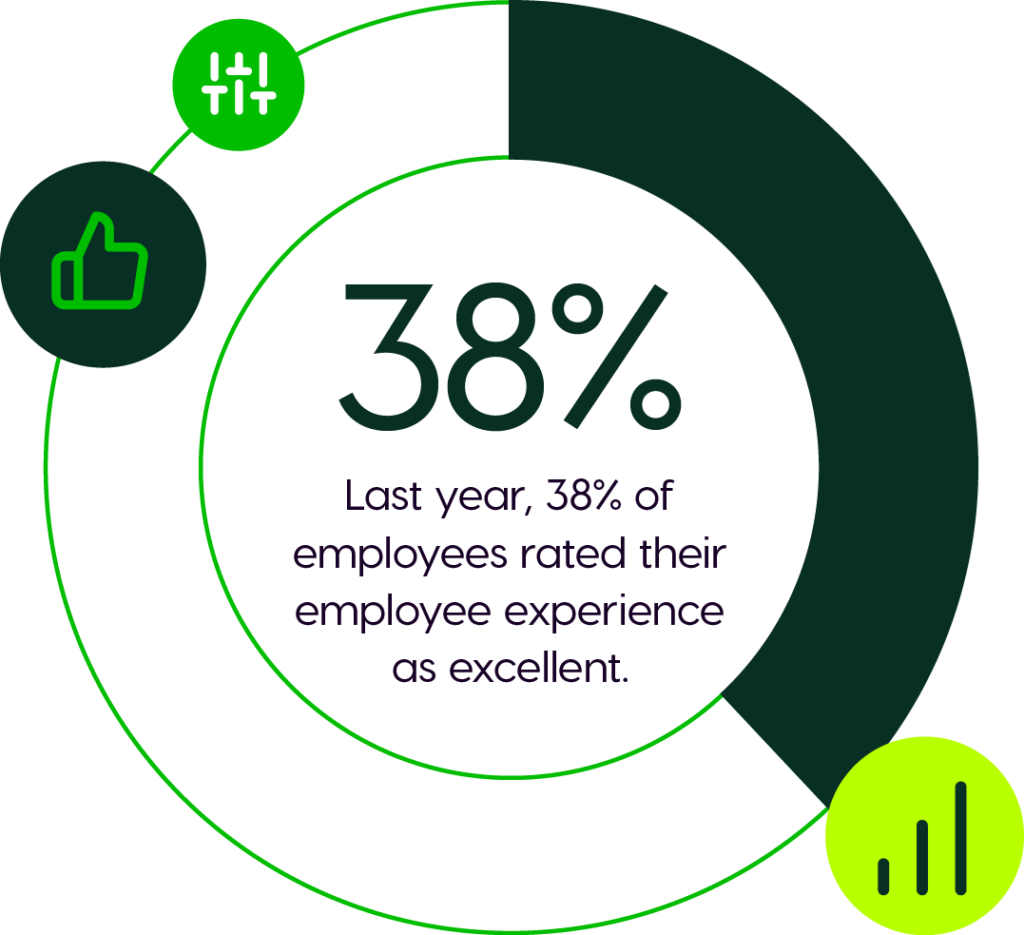
Global
The employee experience perception gap: Cause for concern?
24-07-2024
Last year when we reported our research findings, we revealed the monumental challenge that employers were facing in responding to the rapidly evolving needs of their employees. The very best, well-defined and targeted strategies and programmes were becoming obsolete and irrelevant almost overnight. Employers had recognised the critical need to support their employees, both inside and outside work, looking to benefits that supported their financial, physical and emotional wellbeing. And encouragingly, many were implementing ambitious and far-reaching initiatives to enhance employee experience and protect employees. The issue for many HR and Reward professionals though was simply knowing whether they were focusing on the right things.
This year’s research shows that this challenge hasn’t gone away – in fact, it has intensified. Expectations for employee experience continue to rise and employers know that they can’t afford to stand still. They need to continually evolve their strategies to support their employees, and to meet their most critical workforce objectives – whether that’s attracting specialist talent, upskilling and reskilling existing teams, increasing productivity, or driving business transformation.
Alarmingly, however, our research reveals a widening disconnect between employers and employees when it comes to perceptions around the quality of employee experience that organisations are delivering.
This employee experience perception gap should ring alarm bells for employers; it suggests that, despite all of their well-intentioned efforts to enhance employee experience, many HR and Reward professionals are still behind the pace of their employees’ changing expectations. Either that, or their programmes simply aren’t delivering the desired outcomes.
What is causing the employee experience perception gap?
HR and Reward professionals are feeling overwhelmingly positive about the employee experience they provide, and they point to major improvements over the past year. Employees, on the other hand, have a very different view – they feel that their employee experience has actually deteriorated in the last 12 months.
Almost two thirds (64%) of HR and Reward professionals believe that their organisation is delivering an ‘excellent’ employee experience. This compares to 51% in 2021 and only 32% in 2023. That means that the number of employers claiming to provide a first-class employee experience has doubled in 12 months.
While slightly less optimistic when it comes to assessing what their employees think, HR and Reward professionals are still relatively confident. 44% believe that employees in their organisation would rate their employee experience as ‘excellent’ and 46% feel that employees would view their experience as ‘good’.
However, only 20% of employees consider their employee experience to be ‘excellent’ (down from 38% in 2023) and 36% regard it as ‘good’ (down from 41%). Overall, 56% regard their experience as excellent or good – a significant drop compared to 80% last year.

Not only is there a substantial gulf between employers and employees when it comes to evaluations around the quality of employee experience, it seems that this gulf is actually widening.
It’s worrying that employers feel that they are performing better than they actually are when it comes to providing a great employee experience. It suggests a disconnect between the initiatives employers are undertaking to enhance employee experience (through benefits and wellbeing, for instance) and what their people are actually looking for at this moment in time.

The research finds that employees are far less positive about the experience their employer provides. And alarmingly, the results indicate that employees are much less satisfied with this experience than they were a year ago.
The global analysis
Employees in India and the U.S. generally feel more positive about their overall employee experience, with 68% and 64% respectively rating it as excellent or good. On the other hand, employees in S.E. Asia and Europe are significantly less positive, with only 43% and 52% respectively describing their experience as excellent or good.
When you then consider that as many as 83% of employees in S.E. Asia and 74% in Europe report that employee experience has become more important to them over the past 12 months, it’s evident that trouble is brewing.
Employers urgently need to enhance employee experience, not in their own eyes, but in the eyes of their people.
Interestingly, the perception gap around employee experience is even more pronounced within organisations with global workforces. As many as 92% of HR and Reward professionals in these organisations believe that their employees would rate their employee experience as excellent or good.

There can be no standing still
Employee experience is dynamic; it constantly needs to evolve to meet the needs of an ever more demanding workforce. Organisations need to identify where they need to make further improvements to optimise employee experience.
Above all else, employee benefits are viewed (by both employers and employees) as the number one vehicle for delivering an exceptional employee experience. In response, Reward leaders are increasingly looking to offer a comprehensive range of tailored and personalised benefits to support every aspect of an employee’s wellbeing, whatever their work and life situation.
To find out how you can close the employee experience gap, download our latest research report, The Expectation Exponential.


